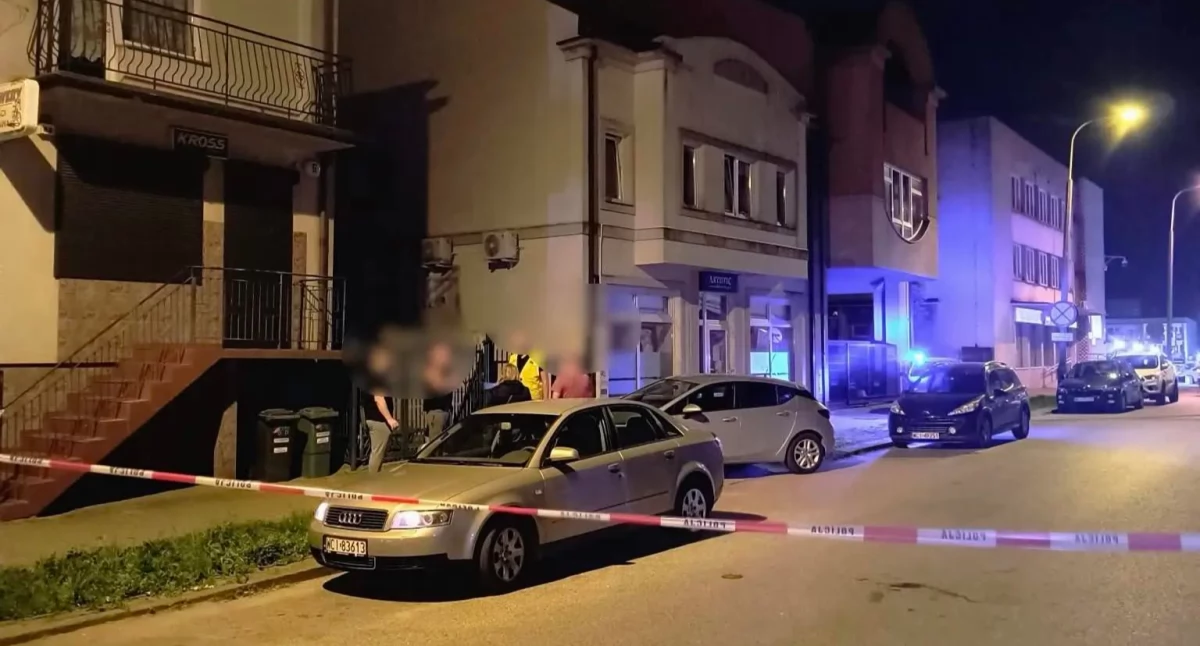
Under this title, an crucial book by Janina Hera was published in Poland, published in Warsaw (Ed. Neriton, 2014 p. 498) and edited in the form of a dictionary. In alphabetical order, there are names of people who helped Jews during the war and, unfortunately, many of them paid for it with their lives. They were shot by Germans. So the many slogans from this peculiar dictionary are besides their obituary.

Gross' calumnies, primitive films specified as “Our Mothers, Our Fathers”, and more late the movie “Ida” with ambitions supposedly for Oscar – are just the loudest of anti-Polish books and screening. It seems that an anti-Polish war was waged in the world, that Poland is very disturbing to individual and that her good name should be defiled.
The Skalking of Poles began a long time ago, in Australia already in 1967 in the Melbourne diary “The Sun” and the Adelajd paper “The Advertiser”, as well as in the Melbourne “Jewish Harald”, where lies were proclaimed that “...The National Army was more eager to execution Jews than to fight Germany”. In defence of Poland's good name, the "Tygodnik Polski" from Melbourne stood and the brochure "Saving Jews in War-Torn Poland 1939-1945" was published, which was sent to state and university libraries in Australia, besides in Poland, and to many institutions in the world. Read more about this in the book Bogumiła Żongołowicz – “Andrzej Chciuk. author from Antipodes” (Kraków, WL 1999, p.146-150). In the face of the escalation of anti-Polish aggression, may it be worth reopening this brochure by updating it?
On a global scale, anti-Polish accents appeared in the American tv series "Holocaust", aired in 1979 besides in Germany. Millions of tv viewers saw Polish soldiers, alongside SS men, in hornets, guarding Jews at railway stations. On the another hand, the only way to save these Jews was to carry “good Germans” in the film. This is reminded by extended introduction to the dictionary by Janina Hera, well developed from the historical side thanks to the indications of Prof. Jan Żaryn and Prof. Edward Krasiński, Dr. Ryszard Tyndorf or Dr. Piotr Łysakowskiegto from the IPN.
It turns out that the method of blaming Poles was utilized by Germans as early as years of war by filming propaganda videos. For example, scenes of beating Jews with sticks by Poles (forced to do so by the threat of being shot!) ended so that German soldiers stood up for the beaten Jews! These propagandas, which were sent to the West, were evidently meant to convince the planet that the top enemies of Jews were Poles. In addition, the “pogroms” organized by the Germans in 1940 were to justify guarding the ghetto with walls, due to the fact that it was expected to be essential to defend Jews from Poles (!).
In the meantime, Poles were helping Jews at the hazard of their own lives, frequently accepting fugitives from the ghetto. After the war, honest Jews protested against slandering Poles, specified as Bernard Mark and Simon Zacharias sending a letter to Edward Ochab.
Unfortunately, on the global arena, the top was the anti-Polish course, e.g. in 1982 a man named Michał Moszze Chęciński (a erstwhile Red Army councillor, then an officer of the Chief Military Information Board in the Polish People's Republic) issued a book in fresh York City (and how!) under the eloquent title: “Poland, Communist, Nationalism, Anti-Semitism”. Written in cooperation with specified Tuzes as Włodzimierz Brus, Helena Wolińska-Brus, Leszek Kołakowski, Antony Polonsky, this propaganda scum smuggled Chęciński's message that guerrillas from 1944-47 murdered not only Soviets and safety officers, but also...Jews, including old people, women and children (!). Piramidal lies are circulating under the patronage of the fresh York official.
There are no shortages of newer agents of anti-polonism, like Stefan Zgliczyński (a postgraduate of philosophy!) who published a book on Poles who helped Germans execution Jews in the publishing home Black Sheep (W-wa, 2013). More about this curiosity book is read in the introduction (p.112), and its author was clearly carried distant with fantasy. Even in the celebrated action in Jedwabne, a fistful of Poles were forced by the Germans to participate under arms.
Anti-Polish tendencies happen and in Polish Institutes abroad, here in 1999 an open discussion was held in Dusseldorf on "newly developed anti-Semitism in Poland" and a controversial exhibition. Both events were led by Adam Krzemiński, writer “Die Zeit” and “Politics”, awarded the Grand Cross of the Order of Merit of Germany, which speaks for itself.
I'm afraid it's only the sum of these constant slanders that can actually origin anti-Semitic sentiments in the Vistula basin. Strange, would the descendants of Abraham like to live with the Poles in conflict alternatively of seeking harmony?
The methods of defamation of Poland – and this in different periods of post-war past – are mentioned in the introduction to Janina Hera's precious book. For example, in Sweden, Mietek Grocher (in 1939 he was only 12 years old!) present is an authority and gives lectures in Swedish schools, in which he slanders Poles in all way. According to him, for example, firefighters did not want to put out the fire in the Warsaw Ghetto (!), but he kept it secret that in the fire trucks of the AK – besides the tramwayists – supplied food and ammunition to Jews (p.88).
Many revelations, sometimes spicy, are discovered on wartime pages (48 - 90).
It's a fascinating reading, and let's leave it to the buyers of the book.
Germany tried to divide Poles with Jews from the very beginning, but it failed, as evidenced by the large number of people hiding Jews. This was frequently done spontaneously, simply saving a man from a Christian command in need.
There are besides priests in the dictionary, but the function of monasteries has been abandoned, and for example only 1 gathering of Franciscan Sisters of the household of Mary has stored about 500 children and 250 adults, as prof. Jerzy Kłoczowski says in “From the hermitage to the community” (W-wa, Reader 1987, p.281). The dictionary is an incomplete work, I see another omissions in it, but the supplemented will broaden our cognition of this tragic period of history.
The importance of the entry itself is enormous, due to the fact that it brings the issues which are not known, which deepen the position of the problem. And Poles saved Jews, even though before the war a large percent of them did not search assimilation or even to master Polish language. The paradox was that their desire to be isolated from autochthons caused – as Gustaw Herling-Grudziński noted – that the German decree to make the ghetto was adopted as sanctioning the natural state of affairs (p.46). According to Antoni Marianowicz (he preferred to search peace on the Aryan side) judaic fanaticism and nationalism revived in the ghetto. And judaic police delivered fresh tenants there.
Janina Hera's crucial book was a title subsidized by the Ministry of discipline and Higher Education, only 400 copies of atolls were published. That's humorous. It is simply a pity, however, to hope that the resumption of this dictionary, and in addition, supplemented, will have a better fate.
At a time erstwhile the tragedy of Auschwitz (Auschwitz as the world's tv broadcasts) was claimed by Jews – although Poles and another nations were killed there – all evidence about that era is of the importance of gold.
Marek Baterovich
Below is simply a blogpress.pl account of the gathering with the author in Amicus on December 9, 2014
 | Marek Baterowicz (born 1 944) made his debut as a poet on the pages of "The Weekly of the Common" and "The Student" (1971). Book debut - "Verses to Dawn" (W-wa, 1976); the title was an allusion to the night of PRL. In 1981, he published outside censorship a collection of poems entitled "Having broken branches of silence". Since 1985 on emigration, since 1987 in Australia. Author of respective prose titles(M.in "Zarno rises in wound"-1992 in Sydney and 2017 in Warsaw) and many poesy collections specified as "heart and fist" (Sydney, 1987), "From that side of the tree" (Melbourne, 1992 – poems collected), "Place in the atlas" (Sydney, 1996), "Chair and Shadow" (Sydney,2003), "On the Sun leash" (Sydney, 2008). In 2010 in Italy there was a selection of poems – "Canti del pianoa", followed by "Status quo" (Toronto, 2014), a collection of short stories – "Jeu de masques" (Nantes, 2014), "Over large Water" (Sydney, 2015) and an e-book of his naval novel, settled in the 16th century "Aux vents conjurés".(www.polskacanada.com/aux-vents-conjures-par-marker-batter |














